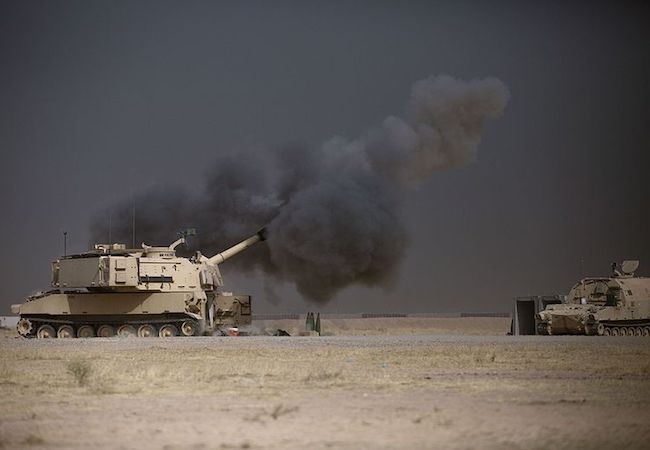How stable would post-ISIS Iraq be?

By Farhang Faraydoon Namdar
Haidar Al-Abadi, Iraqi prime minister visited Mosul and declared retaking of Mosul from ISIS after a demolishing nine months war, which he called it a great victory for the Iraqis. However, Most of the Sunnis have lost their homes and seek refuge where there cities are war-torn and razed. The Kurds are trying to make their own state, how would Iraq be when the Iraqi pro-Shiite forces are free and want a unified Iraq.
In September of 2016 the ‘Mosul Offensive’ or ‘Operation Conquest’ was launched for recapturing the ISIS-controlled territories of Iraq, the offensive was a joint effort involving Peshmarga forces, Iraqi forces, local militias and an international coalition led by the US. Today 9th of July, 2017, the city was taken back after a heavy and devastating battle between ISIS and the Iraqi forces. More than half of the Mosul inhabitants have fled the city and many parts of the city is demolished, especially the western part of it, mostly uninhabitable. In addition the Sunni populated areas are mostly dilapidated and they have been exploited by the Shiite, for example they have plundered Sunni assets to the Shiites and have opened Shiite temples (Huseiniyahs) for the first time in the Sunni populated cities. Sunnis are bereft from any rights and with these victories for the Shiites they situation is aggravating more and more, making the region more volatile and possibly another guerrilla war between the Shiites and the Sunnis. With the Shiite crescent prevailing further in Middle East, especially in Iraq, now the Iranian led Shiite armed forces are free-handed in Iraq, except for Talaafar which is yet to be controlled. The Shiites would try to consolidate their power in the region and suppress the Sunnis. The Sunnis have demanded con-federation or a state for the Sunnis, in order to have their rights and privileges and no longer burdened. The Kurds have scheduled for an independence referendum in 25th September 2017, although the Shiite government fiercely disagrees, because this will further divide and dwindle the Iraqi State. With the Sunni areas razed, billions of dollars are needed to reconstruct the Sunni populated areas, and it’s clear that they Sunni do not have such capabilities and a demographic change would be made by the Shiites, thus turning Iraq into a Shiite state forever and making Baghdad the capital city of Shiite Crescent.
The Kurds are the largest and one of the most ancient stateless nation in Middle East, but they have scheduled for an independence referendum that would be followed by declaration of a new and first Kurdish state in the region. However there is major issue with the central government which is the disputed territories that compose more than 50 percent of Kurdistan’s total land mass. Peshmarga took a great role in fighting ISIS and was the most prominent force in fighting against ISIS having defeated ISIS in Mosul, Erbil, and Kirkuk suburbs. The Iraqi government was very weak when ISIS took huge swathes of land from Iraq and the Iraqi armed forces were defeated subsequently to a degree that Baghdad was at sight of ISIS fighters. The Iraqi forces were desperate, thus with Peshmarga and international aid they were able to defeat ISIS. Now Iraq has gained back strength and demands Peshmarga to retreat to its pre-ISIS locations, however most of the territories that were controlled after ISIS by Peshmarga are Kurdish populated territories and the Kurds have proclaimed they have captured these territories with blood, having no intention of leaving it. The referendum would include the disputed territories, as Stated by Masoud Barzani president of Kurdistan. The Iraqi central government opposes such action taken by the Kurds and refers to it as unconstitutional. There is a likelihood of a war between the Kurds and the Shiites, as the Shiites no longer need Peshmarga and they have lost oil-rich province of Kirkuk. In addition, Hashd Al Shaabi or popular mobilization forces are Shiite militias, supported by Iran and have been fighting against ISIS since 2014. Now with Hashd Al Shaabi being free-handed and Iran relaxed of tensions in Iraq, Iran is no longer busy and the only issue that is will give another head ache to the Iraqis and Iranians is the independence referendum of Kurdistan, as they have expressed their opposition to the referendum. Furthermore, Turkey have stationed many troops on north Iraqi boarders and Recep Teyip Ardogan have frequently expressed its opposition to the referendum and have called it a ‘mistake’. A Kurdish state in Iraq would sparkle a chain reaction from South Kurdistan to West Kurdistan and east and then North Kurdistan, and this is interpreted as a threat to Turkish national security.
With the situations in the favor of Shiites, post ISIS-Iraq does not look bright and the possibility of a war is easy. The Shiites are trying to make a demographic shift in the region and turn Iraq in to a Shiite state. A Sunni State might be the solution for the Sunnis.
Farhang Faraydoon Namdar is an engineer and a student of Politics and International Relations in University of Sulaymaniyah. He is translated political books from English to Kurdish. Activist and writer about political situations in Middle East.




